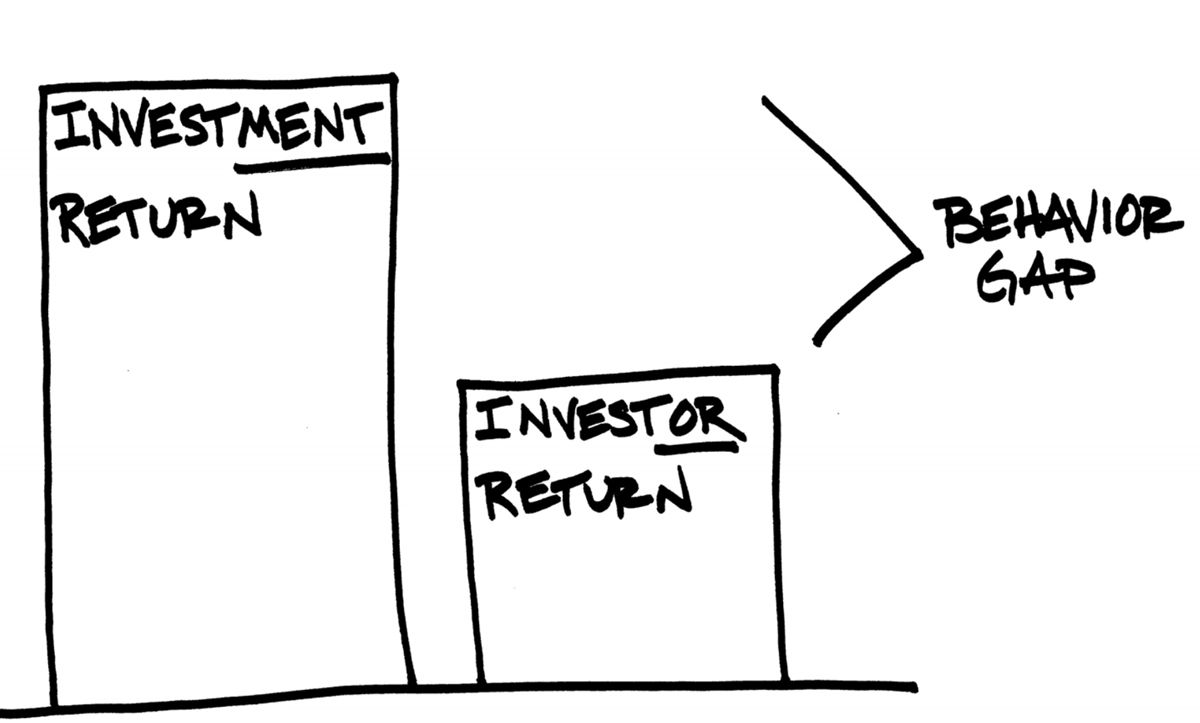Why Do Rational People Make Bad Money Decisions?
July 10, 2020 Author: Tess Downing, MBA, CFP®, Complete View Financial

Ever wondered why rational people (you) make irrational money and investing decisions? Understanding how the mind and emotions can help or hinder our investment success is critical to our long-term investing strategy.
This is similar to the driving bias. The majority of us think we are above-average drivers. This is statistically impossible and highlights the overconfidence bias most humans have in a variety of areas in their life from driving to investing.
In many cases, we make poor financial decisions when experiencing panic or anxiety as a result of personal or widespread events. In the past few weeks, the Coronavirus is one such event that has affected nearly every industry and home as people and governments take action to keep themselves and their community safe. The virus continues to evoke fear and panic as the number of affected individuals rises.
The stock market volatility of 2020 began on Monday, March 9, with history’s largest point plunge for the Dow Jones Industrial Average. On March 16, 2020, the Dow hit a new record. It lost 2,997.10 points to close at 20,188.52, demonstrating the financial effect of this health crisis.2
Whether facing a devastating event or an exciting advancement, people frequently make money decisions as a response. Below we discuss the common financial behaviors driven by such circumstances.
The Behavior Gap Explained
Coined by Carl Richards, “the behavior gap” refers to the difference between a smart financial decision versus what we actually decide to do. Many people miss out on higher returns because of emotionally driven decisions, creating a gap — “the behavior gap” — between their lower returns and what they could have earned.

4 Common Emotions that Can Create a Behavior Gap
#1: Excitement When Stocks Are High
Whether in a bull market or witnessing the hype from a product release, many investors may feel tempted to increase their risks or attempt to gain from emerging investments when stocks are high. This can lead to investors constantly readjusting their portfolios as the market itself experiences upswings. An investor who follows such patterns is likely to do the same with declines and may end up trying to time the market time and again amidst its inevitable, unpredictable movement.
#2: Fear When Stocks Are Low
As a response to the Coronavirus, the market has seen losses as many investors feel the need to choose more secure investments and avoid uncertain or seemingly unsafe investments.2 When stocks are low, a common response may be to sell and effectively miss out on potential long-term gains.
#3: Engagement in the Search for Alpha
People yearn to make money and take action to do so. Throughout our lives, this emotional desire is likely a constant one. As such, many seek the help of a financial advisor to procure above-average returns, otherwise known as “alpha.”1 However, in this search for “alpha,” our humanness — our emotions and our behaviors — may lead us astray. Ironically, studies done by DALBAR have calculated the “average investment return” as compared to investor returns and have shown that investor returns are lower.1 The underlying emotional desire and pursuit of money is exactly the recipe for unwise behaviors in response to emotions — but only if left unchecked.
#4: Short-Term Anxiety and Focus
As humans, viewing aspects of our lives through the lenses of current circumstances is normal. One emotional response to any event, however, is letting the moment consume us, especially if faced with grave consequences — from our personal health being compromised to the loss of loved ones. Many may find it difficult in these times to both think long-term and to remember logic. However, making a rash decision can inhibit the long-term benefit that comes from maintaining a balanced perspective without reactionary behavior.
How to Lessen the Behavior Gap for Your Financial Health
At any given point, the market can go up, down or it can remain the same. While many aspects of the virus are out of our control, one thing we can control right now is how we handle our financial strategy.
In the past, the market has recovered in response to epidemics with an average of 17.17 percent over time.3 While no two situations are alike, remembering the likelihood of recovery over time — and the market’s nearly inevitable up-and-down movement — can provide a more logical angle to calm the nerves.
If you’re experiencing financial anxiety in response to the coronavirus, take a breath and also remember the potential for long-term gains. Of course, you can and should always reach out to your advisor for further clarification and advisement.
https://behaviorgap.com/outperform-99-of-your-neighbors/
https://www.nytimes.com/2020/03/16/business/stock-market-today-coronavirus.html
